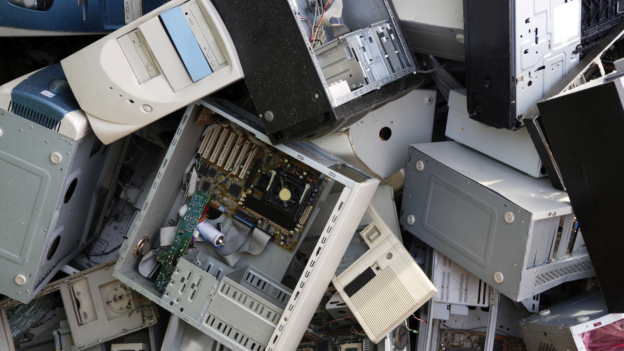In today’s rapidly evolving technological landscape, the lifecycle of electronic equipment is becoming shorter and shorter. With each new iteration of technology, older equipment often finds itself relegated to storage rooms or, worse yet, landfills. This trend not only contributes to the growing problem of electronic waste (e-waste) but also represents a significant loss of resources and potential value. However, there is a sustainable solution at hand: equipment resale.
The Importance of Addressing E-Waste
E-waste poses a considerable environmental threat due to its toxic components and slow decomposition rates. According to the Global E-waste Monitor 2020, the world generated a staggering 53.6 million metric tons of e-waste in 2019 alone, with only 17.4% of it being collected and recycled. The remaining e-waste ends up in landfills, where hazardous materials can leach into the soil and water, posing serious health risks to humans and ecosystems alike. Moreover, electronic devices contain valuable resources such as precious metals, plastics, and glass, which can be recovered and reused through proper recycling processes. By diverting electronics from landfills and maximizing their lifespan through resale, we not only reduce the environmental impact of e-waste but also conserve valuable resources and energy required for manufacturing new equipment.
The Role of Equipment Resale in Sustainability
Equipment resale plays a crucial role in extending the lifecycle of electronic devices and reducing e-waste. Instead of discarding used equipment, businesses and individuals can sell it to others who have a need for it. This not only prevents functional devices from ending up in landfills but also allows them to continue serving their intended purpose. Furthermore, equipment resale promotes a circular economy model, where resources are kept in use for as long as possible, thus minimizing waste and maximizing value. By facilitating the reuse of electronics, we can significantly reduce the demand for new products, thereby decreasing the environmental footprint associated with manufacturing, transportation, and disposal.
Tips for Reselling Equipment Responsibly
If you’re considering reselling your used test and measurement, lab, or semiconductor equipment, here are some tips to ensure a smooth and environmentally responsible process:
1. Assess the Condition: Before listing your equipment for resale, evaluate its condition accurately. Be transparent about any defects or signs of wear to set realistic expectations for potential buyers.
2. Clean and Maintain: Clean and maintain your equipment to improve its visual appeal and functionality. A well-maintained device is more likely to attract buyers and fetch a higher resale value.
3. Provide Detailed Descriptions: When creating listings for your equipment, provide detailed descriptions including specifications, features, and any accessories included. High-quality images can also help showcase the condition of the equipment.
4. Price Competitively: Research the market value of similar equipment to determine a fair and competitive price. Consider factors such as age, condition, and market demand when pricing your items.
5. Choose a Reputable Platform: Select a reputable online platform or marketplace for listing your equipment. Ensure that the platform has measures in place to protect both buyers and sellers, such as secure payment methods and dispute resolution mechanisms.
The Benefits of Buying Used Equipment
On the other side of the transaction, buying used equipment offers several benefits to businesses and individuals. Firstly, it provides access to quality equipment at a lower cost, enabling organizations to stretch their budgets further and invest in other areas. Secondly, buying used equipment promotes resource conservation by giving existing devices a second lease on life. Finally, purchasing used equipment can be a sustainable choice that aligns with corporate social responsibility goals and environmental stewardship.
In conclusion, equipment resale presents a sustainable solution to the growing problem of e-waste. By extending the lifecycle of electronic devices and promoting resource conservation, we can mitigate the environmental impact of electronic waste while realizing economic and social benefits. Whether you’re selling or buying used equipment, embracing the principles of sustainability can lead to positive outcomes for both your business and the planet. Join the movement towards a more sustainable future—one resale at a time.

